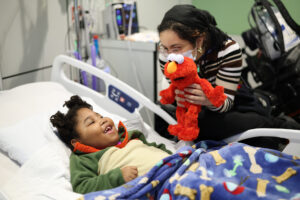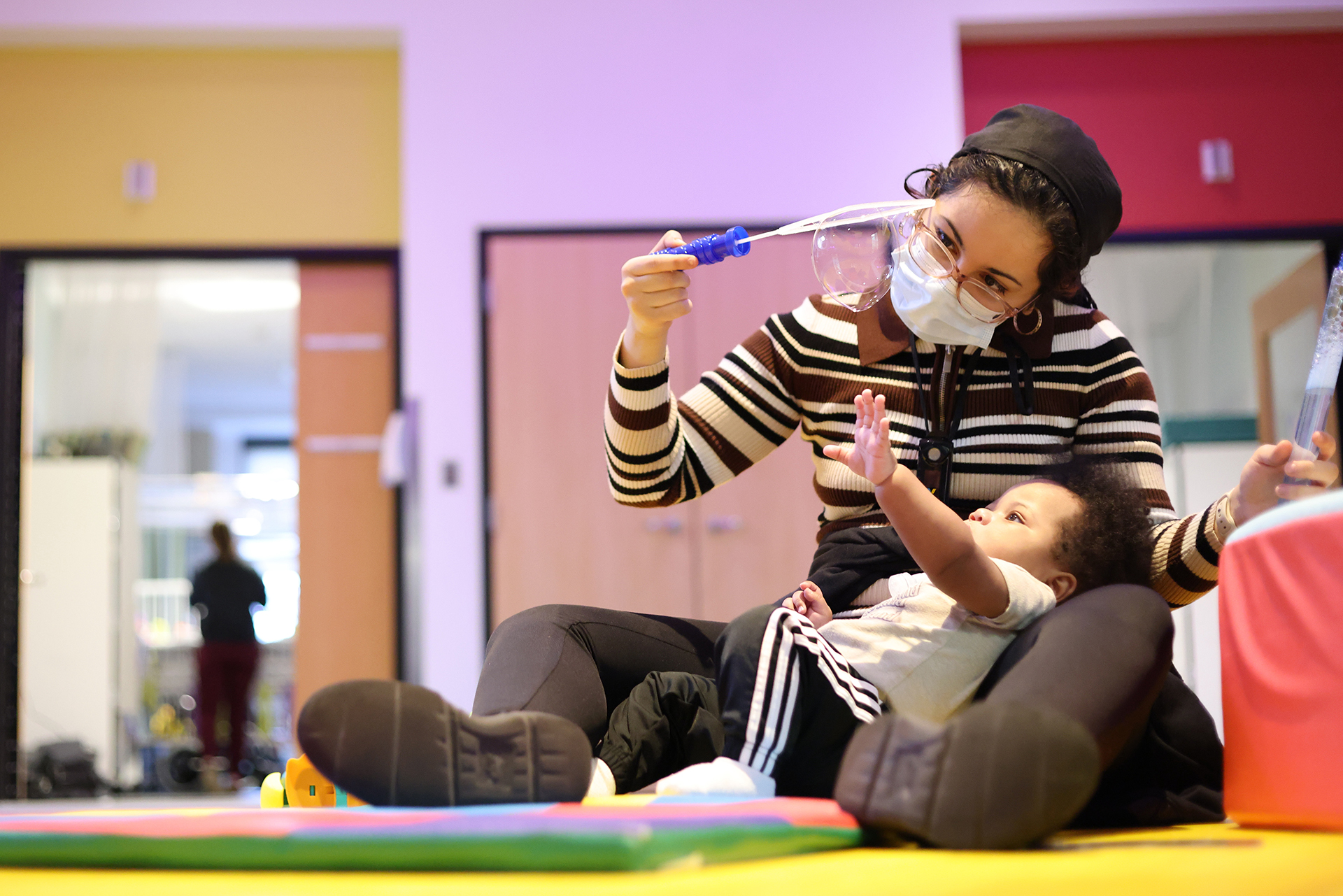Last year we started hiring for what has quickly become one of the best jobs around: a Patient Play Associate (PPA), a new, paid position dedicated to playing with kids at Ranken Jordan.
To the best of my knowledge, we’re the first hospital to create a job like this. While certain types of play are used by Occupational Therapists, Child Life Specialists and other therapy professionals to achieve certain medical outcomes, our PPA position is solely focused on allowing our kids to do what they love most: to play just for fun.
It’s been a year since we conceptualized this role, so I wanted to share the impressive results we’re already seeing.
Why we developed the Patient Play Associate job
Our unique care model, Care Beyond the Bedside, focuses on play as healing. We are devoted to innovation and looking for ways we can improve, so last year we identified a need for a PPA.
We came to this conclusion for three reasons:
- The research supports it. Our latest research suggests hospital environments need to be more stimulating to mitigate the risk of developmental delay for the youngest patients. Based on our findings, we identified multiple ways to help young patients’ neurodevelopment such as more face-to-face interactions.
- Our youngest patients were getting antsy. While Ranken Jordan patients spend more time out of their hospital room compared to the typical hospital setting, they still spend more waking hours in bed than we would like. Our younger patients were getting bored when they were left in bed unattended, and they often pulled at their medical devices (like a tracheostomy) which adds to patient safety concerns for kids already at risk for adverse outcomes.
- We wanted to give our patients more normalcy. It’s bad enough that our patients have longstanding and complex medical conditions that keep them from doing what other kids do. On top of that, it’s often not feasible for family members to be present as often as they’d like. Giving kids opportunities to play despite these circumstances is the antidote to some of the negative effects of long hospital stays.
The results so far
 We’ve noticed kids are pulling at their medical devices less and they’re happier when they’re engaged in kid-friendly activities. This is especially true in the evenings and on weekends when we have less scheduled programming for children like OZ
We’ve noticed kids are pulling at their medical devices less and they’re happier when they’re engaged in kid-friendly activities. This is especially true in the evenings and on weekends when we have less scheduled programming for children like OZ
Our PPAs have also taken pressure off our nurses in a variety of ways, including helping them with tasks that don’t require clinical training, such as brushing a patient’s hair.
How our PPAs play with kids
It’s been amazing to watch our PPAs interact with patients as they are all so creative and enthusiastic when it comes to entertaining our kids.
Depending on age and ability, activities range from reading books and coloring to creating friendship bracelets in our art room. Card games are also popular among our teens right now and they love karaoke!
We’ve also trained the PPAs on how to safely transport children from their hospital beds to play spaces or outside, so the PPAs can take our patients on nature walks or play on our wheelchair-friendly swing set.
How you can help
My goal with sharing more information about this role is I want other hospitals to learn how they, too, can create a more stimulating environment for children in the hospital, especially those with prolonged stays.
If you’re a health care professional, I encourage you to share this piece with your network.
Our vision at Ranken Jordan is to create a world where every child with complex medical needs lives their best life and I believe our new team of PPAs is another critical piece in completing this mission.
E-Newsletter Coming Soon!
Sign up today to subscribe and receive our upcoming e-newsletter.






